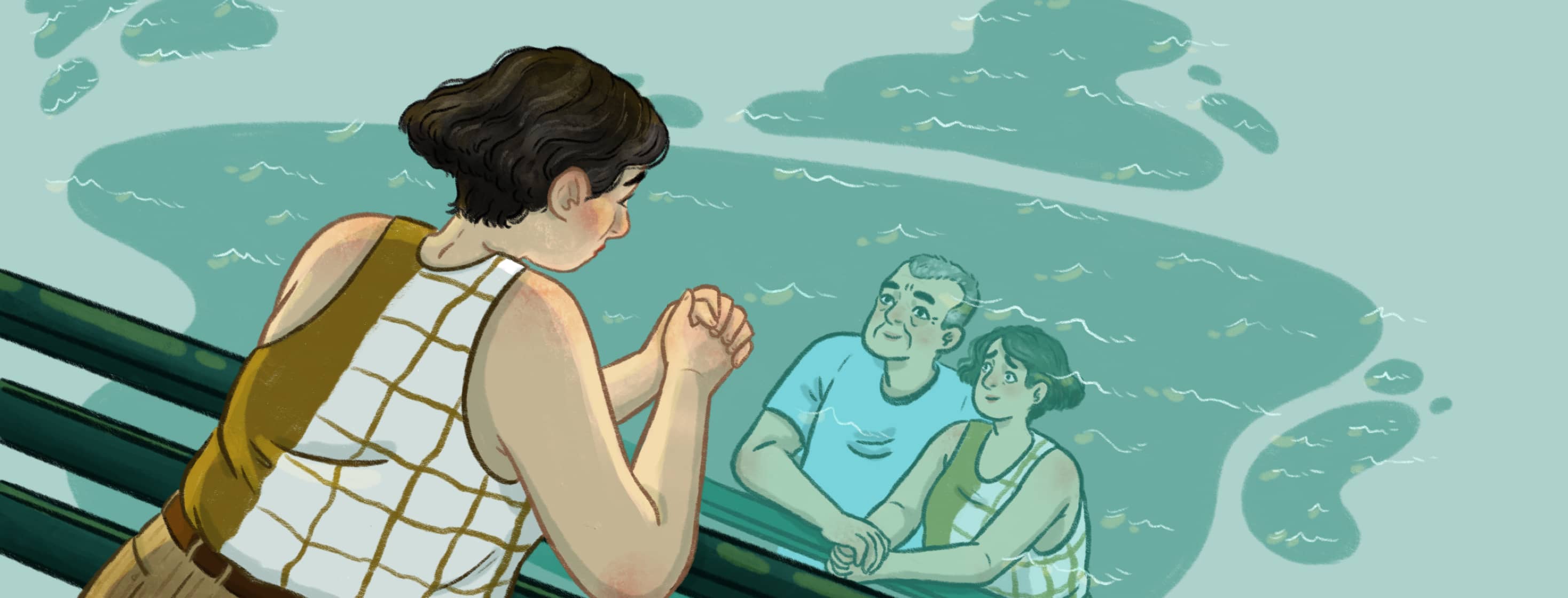Recognizing My Long Haul Grief
My family and I knew that my Dad, at some point, would die due to Alzheimer's and that some deep feelings were sure to follow. What I did not anticipate was the unexpected emotion that rose up after he passed away; I felt a sense of relief.
Of course, I was completely heartbroken that he was no longer alive and that he physically was no longer here. But what was this small flicker of peace and calm that I felt at the bottom of my heart? Why was it there? Isn't this supposed to be one of the most sorrowful times in my life?
The pre-death long haul grief
When someone you love is diagnosed with Alzheimer's you only have a small sense of what is to come.
Yes, you can do your research and check the stats and facts: is there a treatment (nope), is there a cure (definitely not right now), the average life expectancy, and so on and so forth. There are legal things you can do like starting to make financial adjustments and there are lifestyle changes to anticipate.
What is not often discussed at the outset of this journey is the pre-death long-haul grief you experience. This is probably why I initially didn't understand that feeling of relief.
Stages of grief
Most people are familiar with Elizabeth Khubler Ross's book, On Death and Dying. In it, she lists her "5 Stages of Grief," denial, anger, bargaining, depression, and acceptance.
What if these stages don't just occur after death? What if you experience them before - during the many years of caregiving? I know I did.
Denial
As a clinician, I know that if I see behaviors repeating over and over it must mean something is going on. To have a medical diagnosis on top of what my family and I were experiencing ruled out any denial that there was something going on with my Dad. Or did it?
I was probably in denial about what was happening to my Dad for longer than I care to admit. I thought if my family and I can figure out how to pivot and work our way through the changes occurring then we would be fine.
Unfortunately, as most caregivers know, you can only deny things for so long. Eventually, the disease catches up and there is no denying how different your loved one has become.
Anger
Anger can come it many forms when working through Alzheimer's. Anger at the disease destroying your loved one and their memories, anger at how the disease impacts your life as a caregiver.
The frustration and exhaustion you may feel going through the daily grind and knowing that it will eventually get better but at a heavy cost. I can say I felt angry, particularly towards the last months of my Dad's life, almost daily. It was ok to be angry then and it's still ok now.
Bargaining
I can't say that I really went through the bargaining stage. Maybe it was more of a "why" stage. Why him, why now, why Alzheimer's?
I still don't have a 100 percent answer for the why but the closest thing I can think of is sharing my story so others can learn and not feel so alone in their journey.
Depression
Yes. A 1,000 percent, yes. Alzheimer's disease can bring about every negative emotion there is out there. To experience anger, sadness, envy (of those not dealing with the disease), complete fatigue across the board month in and month out takes its toll on the caregiver.
I know I was depressed for a bit. I'm a speech therapist, not a psychological therapist so my only advice is to seek help when you need it. If you aren't healthy, you can't take of your loved one to the best of your abilities.
Acceptance
Acceptance came late in the game. Late, as in the few short weeks before my Dad died. I think I had been in denial for so long that when things reached a breaking point, that's when I woke up.
I consider myself a pretty smart woman but it was hard to accept that I couldn't problem-solve Alzheimer's away. Once I accepted the inevitable, I was in an "it is what it is" mentality. And it made the coming days and weeks not as intimidating.
Some of the relief was for me
As a caregiver who had unknowingly been actively grieving for so long, some of that relief I experienced was for me. It was for my Dad as well.
He no longer struggled to find words, to walk up and down the stairs, or to eat. He now has all the answers to all the questions people had been asking him over the years. Hopefully, one of those answers is in the winning lottery numbers and he gets them to me shortly.

Join the conversation